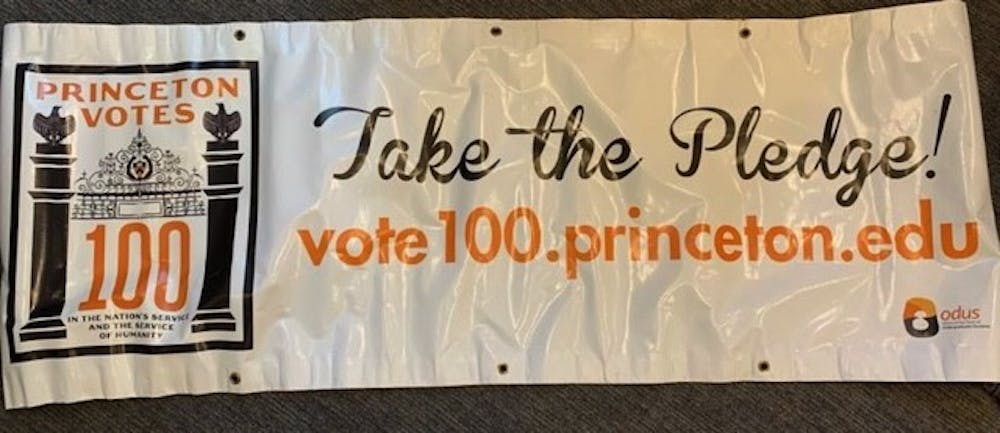The University’s 2020 undergraduate voting rate reached a record-breaking 75.4 percent — an increase of 24.9 percent from 2016, and the highest voting rate ever recorded for the University — according to a report by the National Study of Learning, Voting, and Engagement (NSLVE). College and university students across the country participated on a similarly unprecedented scale, boosting the Average Institutional Voting Rate from 53 percent in 2016 to 66 percent in 2020.
Based within the Institute for Democracy & Higher Education at Tufts University’s Jonathan M. Tisch College of Civic Life, NSLVE provides participating colleges and universities with analyses of the voting rates and patterns on their campuses and allows for easy comparison of results between peer institutions and national averages. The report contains data from 2016, 2018, and 2020.
The registration rate — the percentage of the eligible student population that is registered to vote — rose significantly as well. Whereas in 2016 Princeton had a below-average registration rate of 70.1 percent, in 2020 it surged above both its previous record and the new national average to a rate of 87.5 percent.
NSLVE breaks its statistics down into demographic categories. Estimated voting rates were above 70 percent for all race and ethnic groups. The voting rates by sex revealed similar rates, with the turnout among female students at a slightly higher 79 percent than the 73 percent of male students.
Among the various academic departments and fields of study, the greatest participation came from students within the School of Public and International Affairs (SPIA), which boasted a turnout rate of 81 percent.
The voting gap that historically existed between humanities and STEM departments decreased significantly. Visual and performing arts students had the smallest turnout rate with 63 percent.
The first-year students in 2020 — members of the Class of 2024 — had the highest turnout rate among the class years, at 80 percent followed by juniors and seniors years with a combined rate of 78 percent and second year students close behind at 77 percent.

Divisions by education level revealed that undergraduate students turned out at higher rates than graduate students, with a voting rate of 79 percent compared to the graduate student rate of 69 percent.
This comes as Vote100 — a campus initiative aiming for 100 percent civil engagement among the student body — has increasingly directed its efforts at targeting incoming students.
Vote100 has encouraged first-year students to register to vote by utilizing the first-year orientation program and partnering with TurboVote, an online service that streamlines the voter registration process and sends users important information about upcoming elections.

“We’re really just very encouraged by Princeton’s performance in the 2020 election. We want to keep the momentum moving,” said Joe Shipley ’22, a Vote100 Fellow. “Our goal is to increase turnout in local and state elections. It’s to make sure that students who are registered and from other states are able to vote. It’s making sure that we get consistent, clear messaging to every corner of the University’s campus. And then we’ll build into a permanent organization that’s here, rain or shine, primary or general, and presidential or non-presidential.”
The high levels of participation among the youngest Princetonians is particularly significant. As the report states, “voting is habit-forming and young voters will usually continue as voters in subsequent elections.”
“It’s exciting to see students really embrace the motto of human service and nation and humanity and for them to not only vote themselves, but look for opportunities to engage other voters,” said Deputy Dean of Undergraduate Students Thomas Dunne. “That part is really gratifying.”
Alexa Marsh is a news contributor for the ‘Prince.’ She can be reached at alexagmarsh@princeton.edu.
Charlie Roth is a news contributor for the “Prince.” He can be reached at charlieroth@princeton.edu or @imcharlieroth on Twitter or Instagram.








